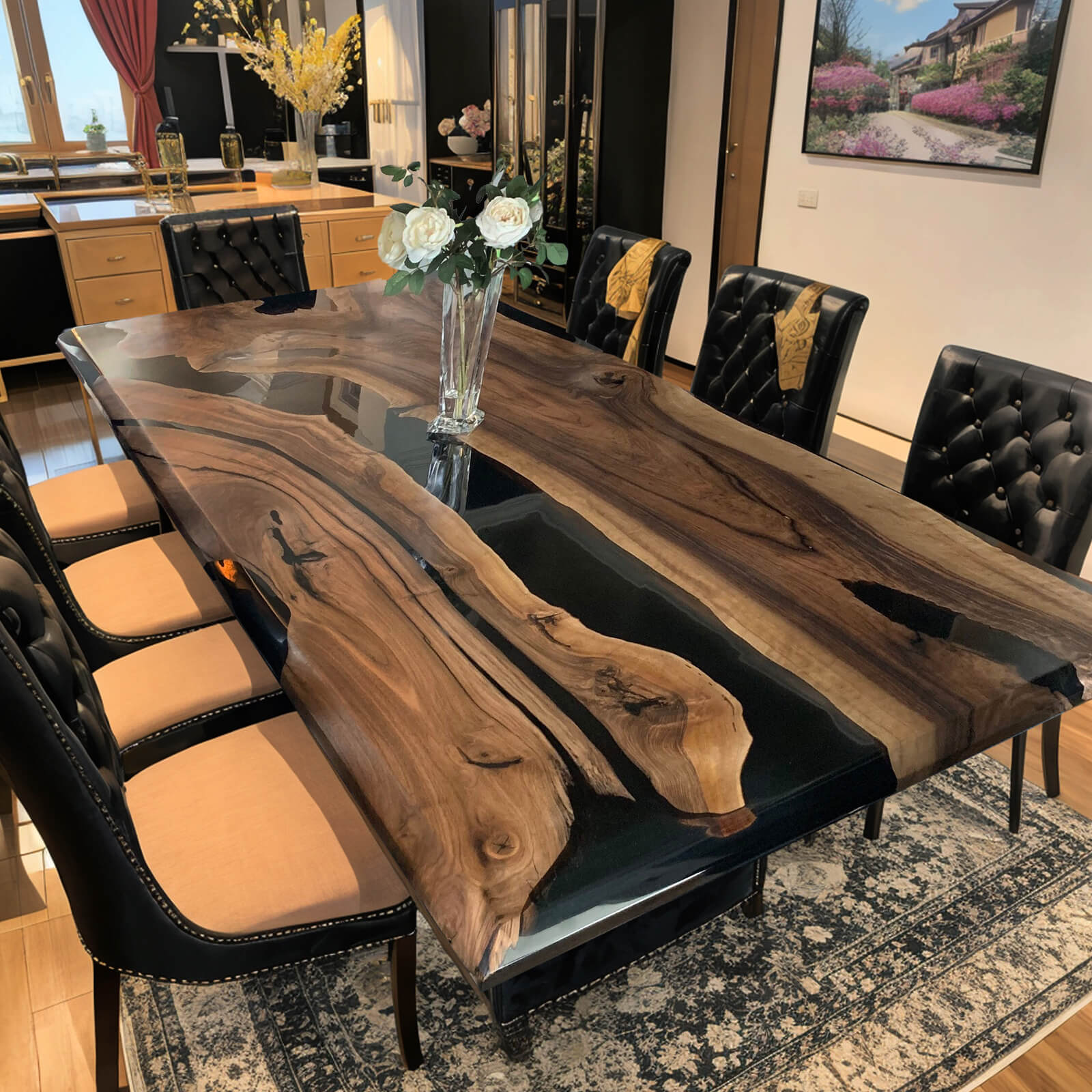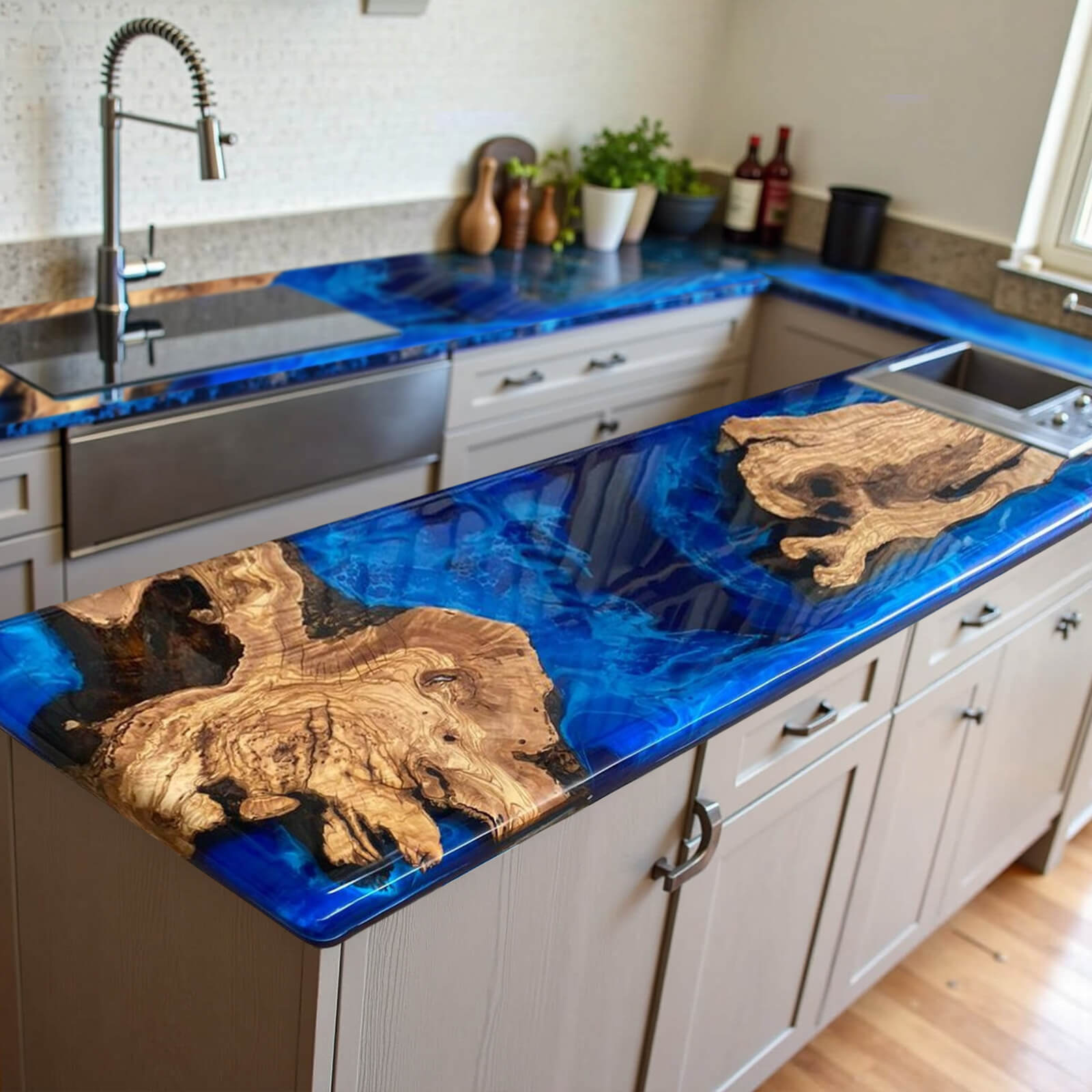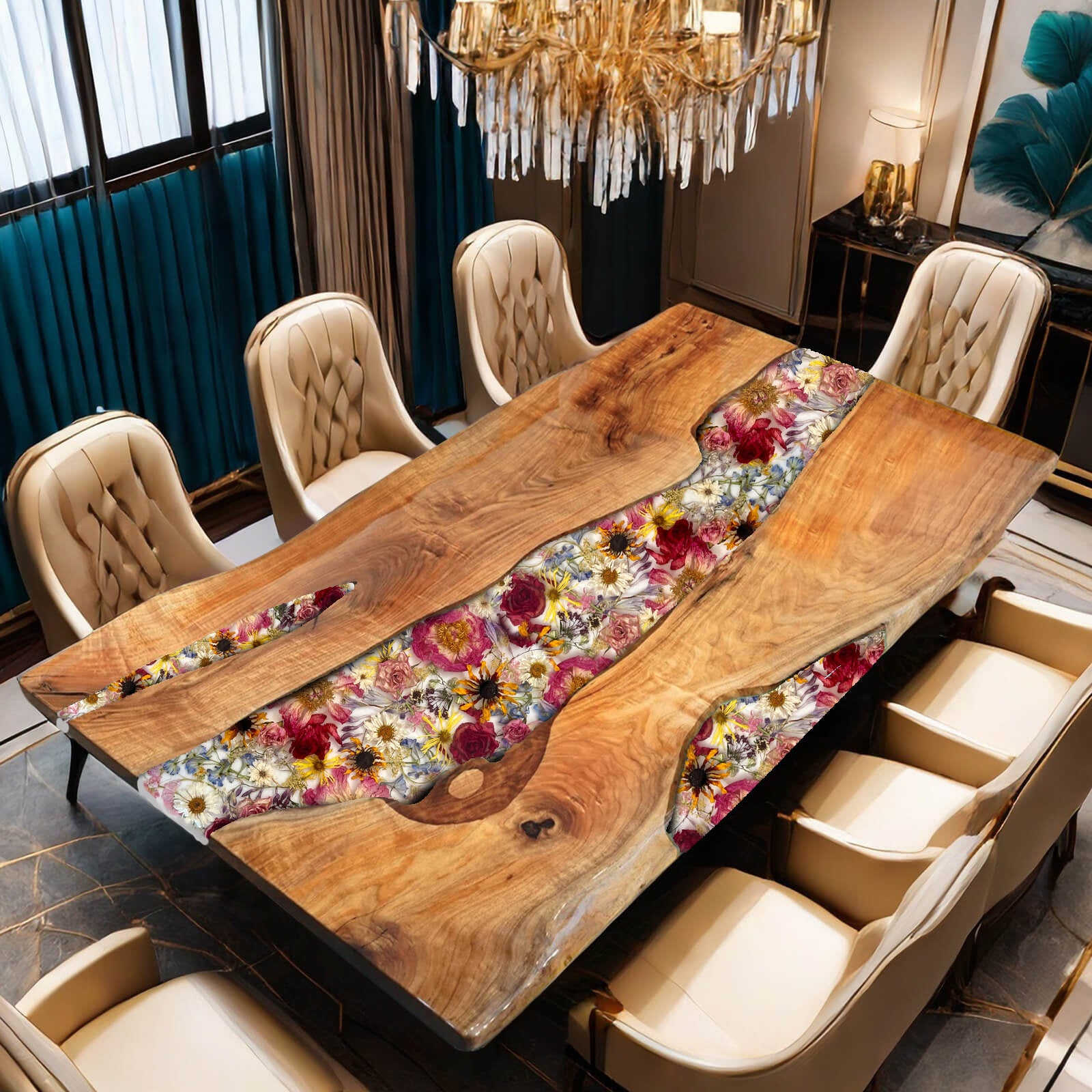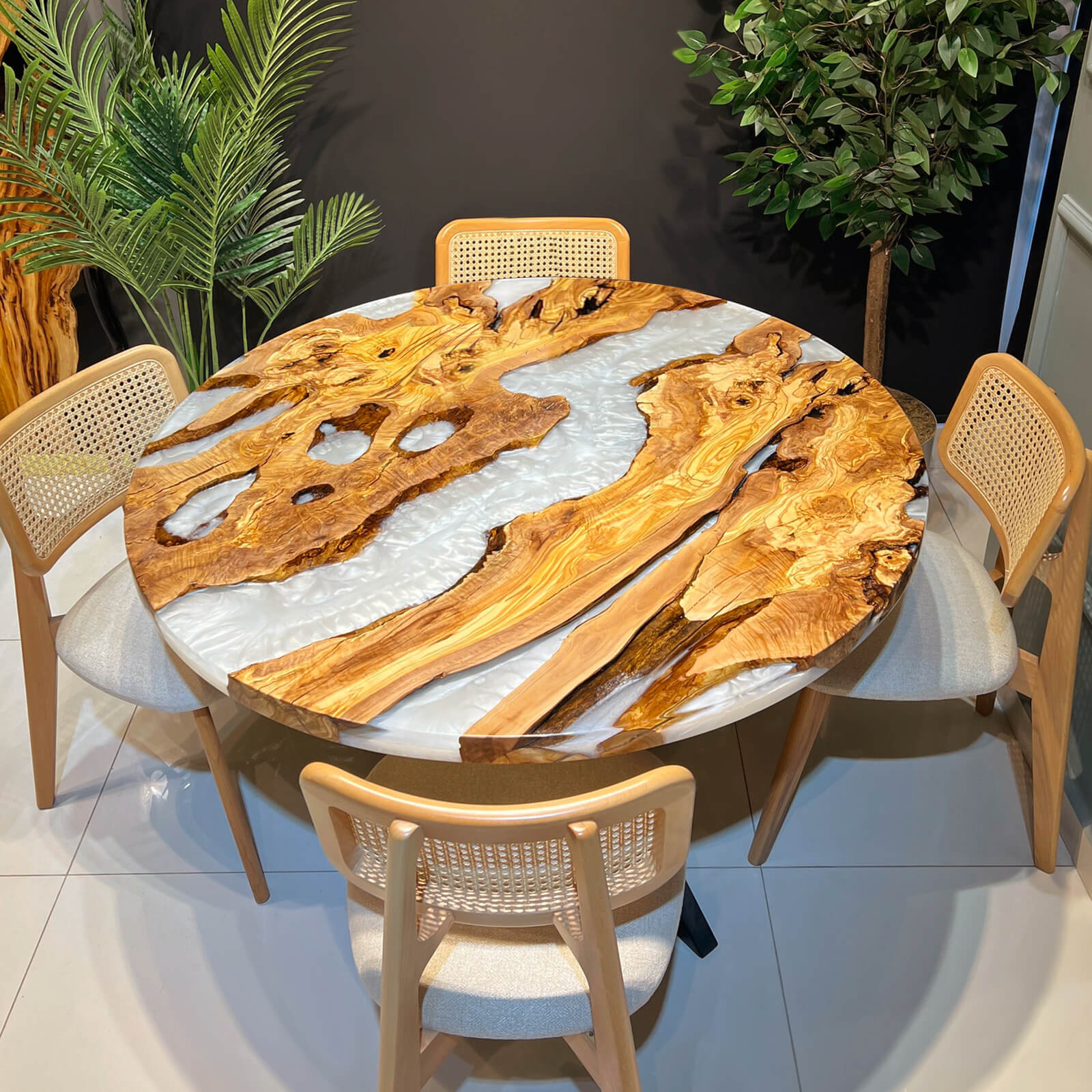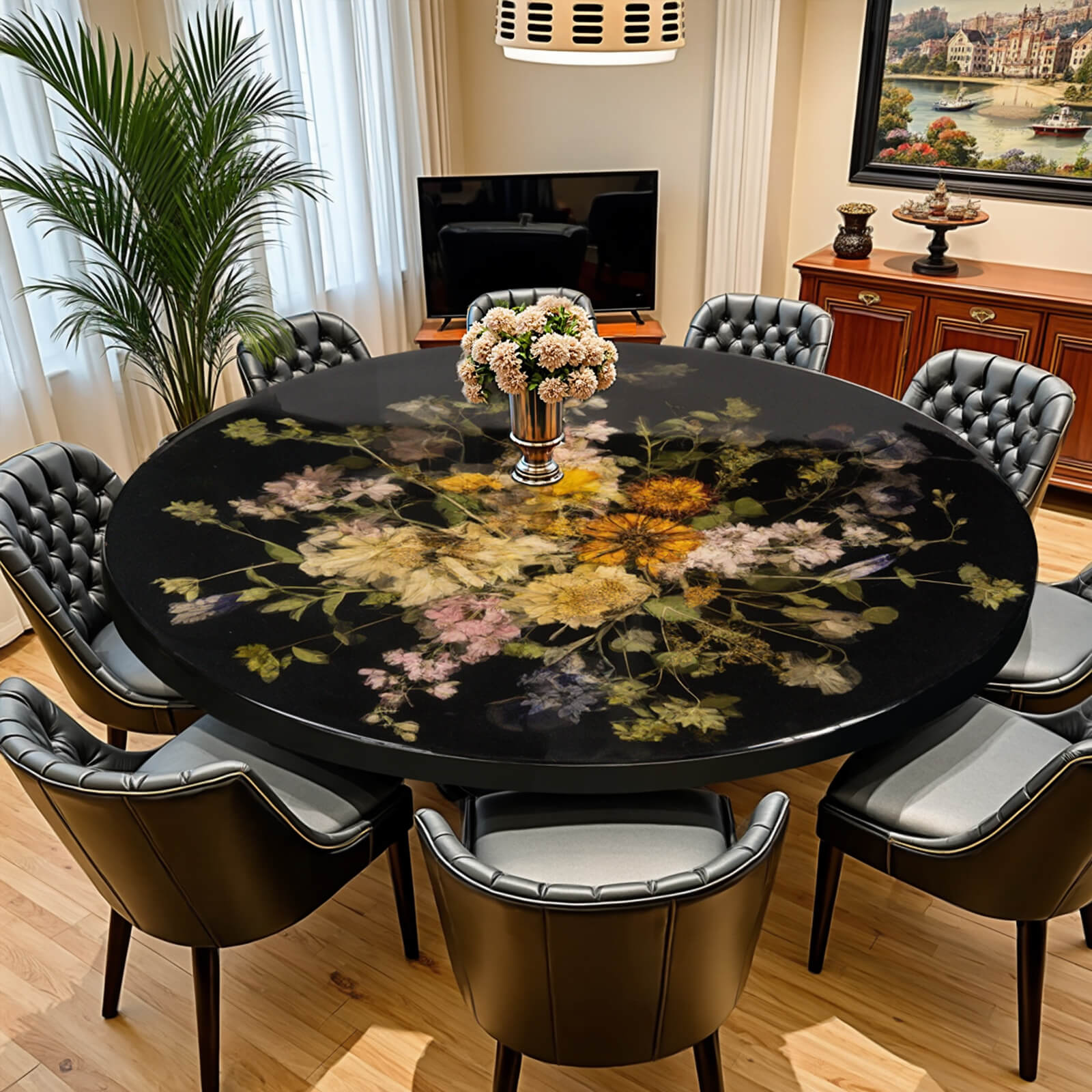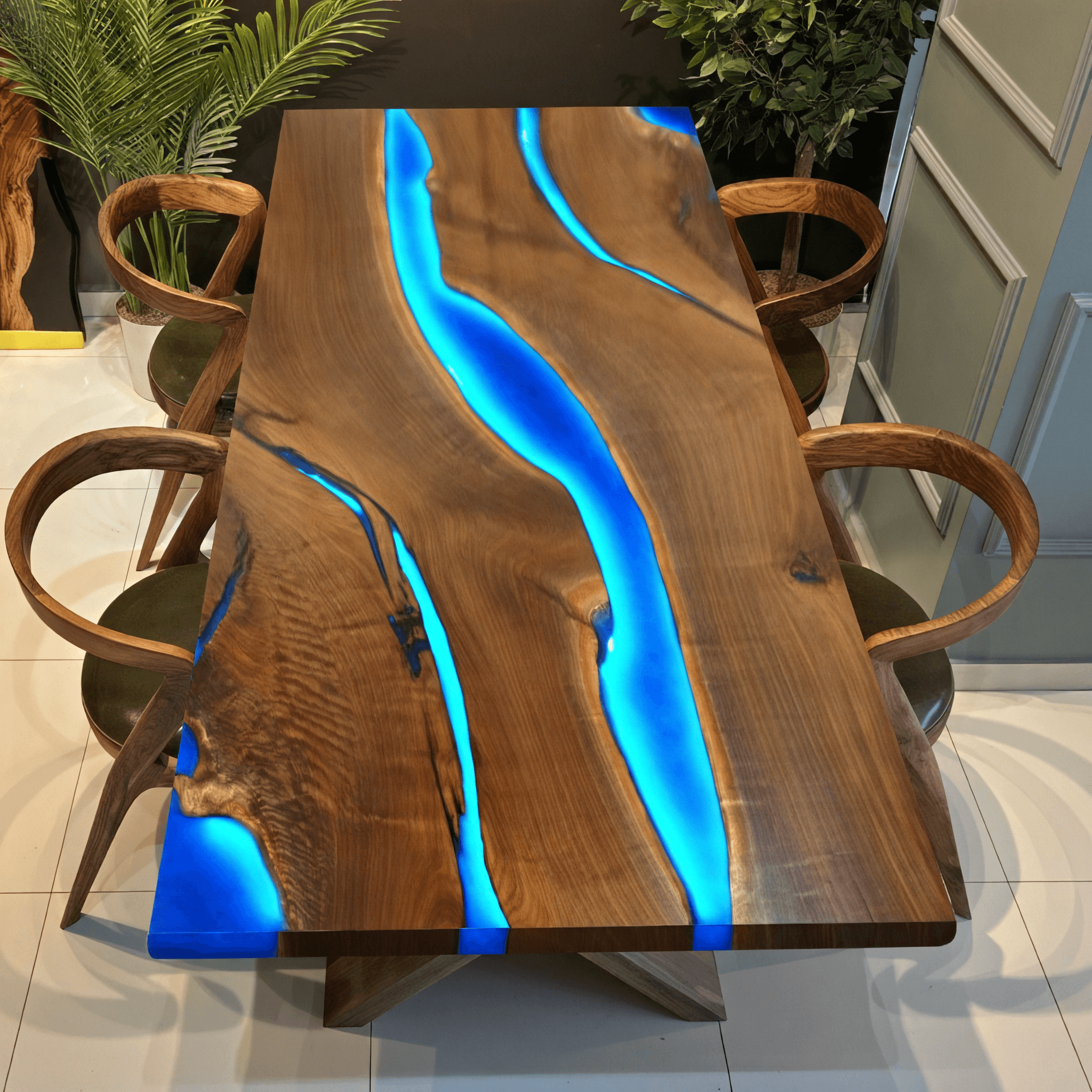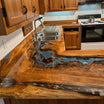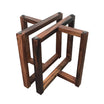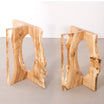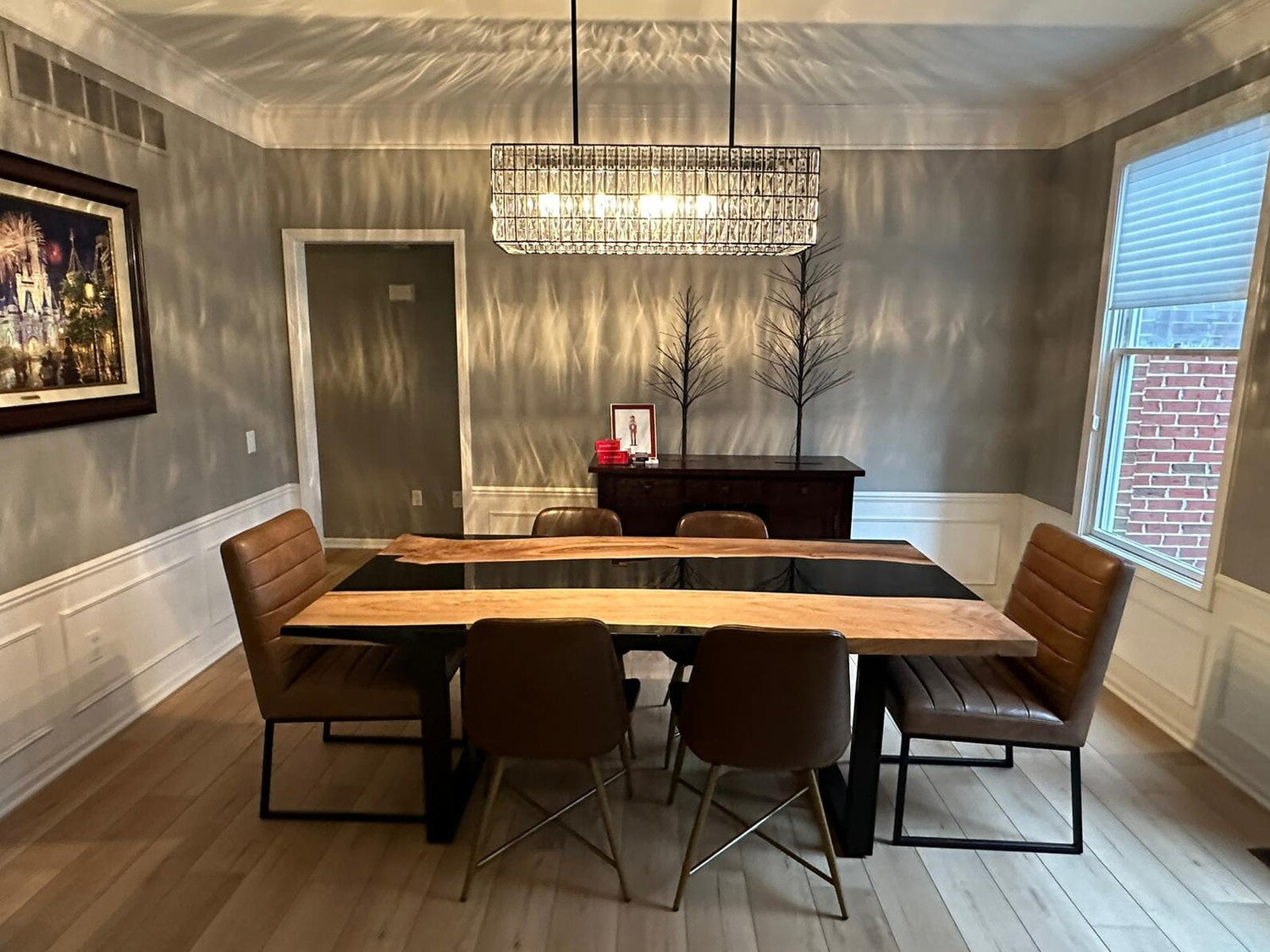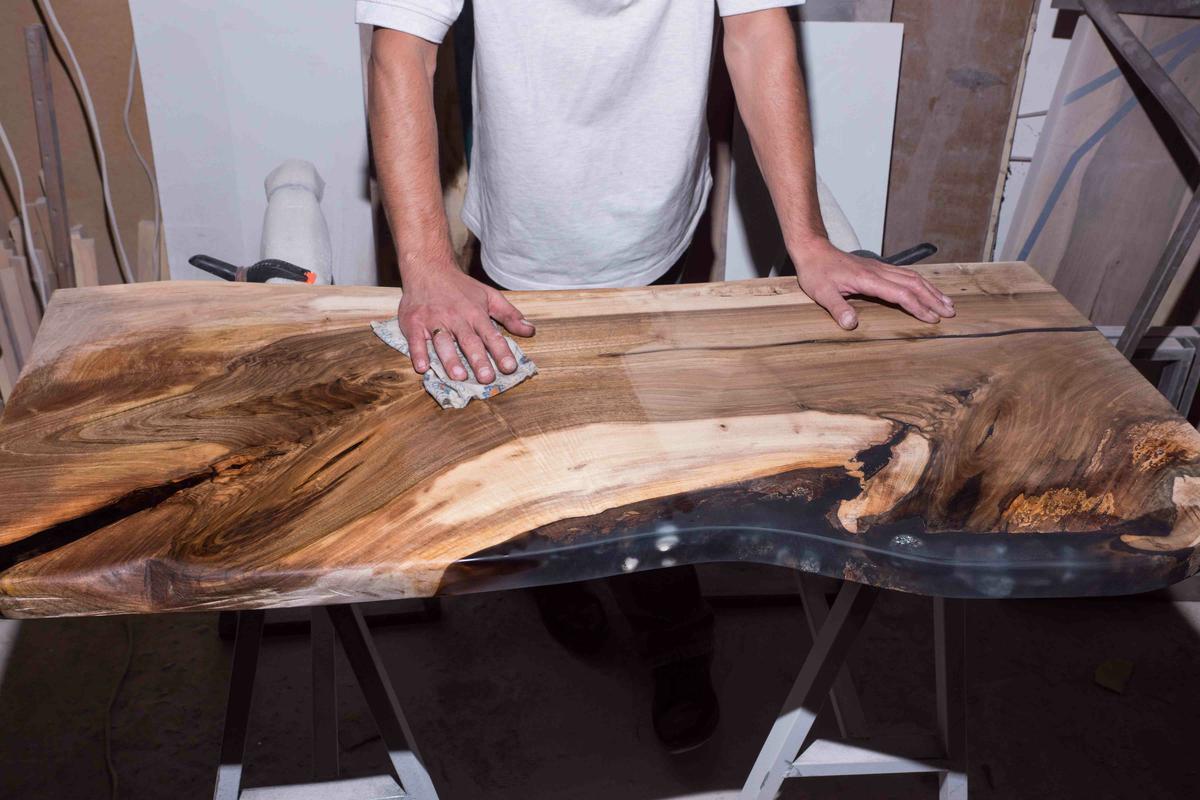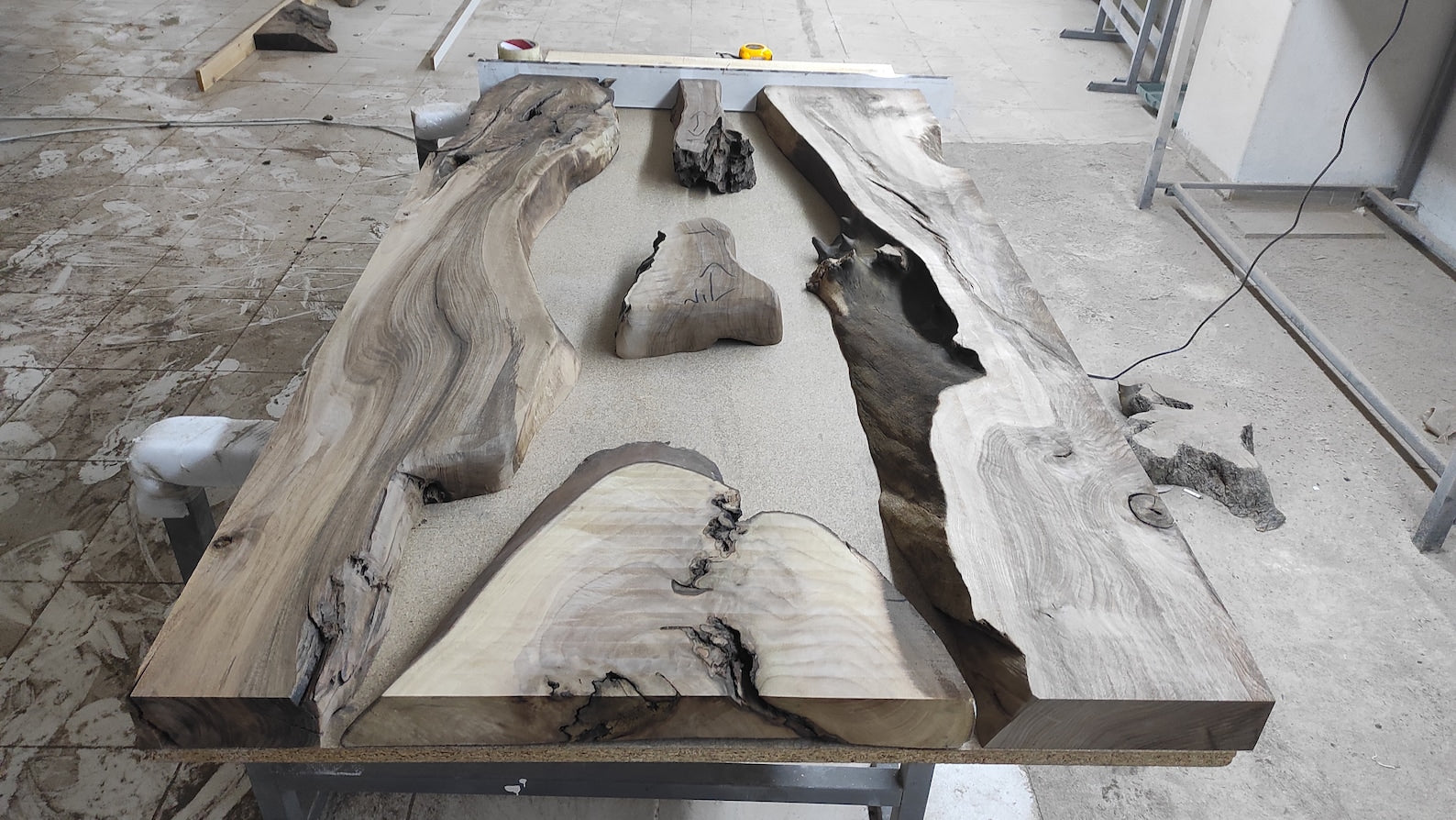Black walnut has become a sought-after material for furniture, especially for resin tables. Known for its rich, dark tones and natural beauty, black walnut brings a timeless quality to any piece. When paired with resin, it creates stunning tables that balance rustic elegance with a modern, artistic touch. This article explores the advantages and challenges of using black walnut for resin tables, helping you decide if it’s the right choice for your next project.
Advantages of Black Walnut for Resin Tables
- Aesthetic Appeal
Black walnut’s deep, dark tones and unique grain patterns make it one of the most visually striking woods available. Its natural variation creates captivating visuals when combined with clear or colored resin, highlighting the organic beauty of the wood. Each table becomes a one-of-a-kind masterpiece.
- Durability and Strength
Black walnut is a hardwood, prized for its strength and durability. It’s resistant to wear and tear, making it a great choice for furniture that’s built to last. Resin tables made with black walnut are not only beautiful but also robust, providing a lasting investment.
- Smooth Finish and Workability
Black walnut sands down well, allowing for a smooth finish that enhances the seamless transition between wood and resin. Its workability makes it easier to create customized shapes and edges, which adds versatility to resin table designs.
- High-Value Appeal
Black walnut is known for its luxury status in woodworking. Using it in resin tables elevates the table’s value and desirability. It’s often associated with premium, artisanal furniture, which appeals to discerning customers looking for unique, high-quality pieces.
Challenges of Black Walnut for Resin Tables
- Cost and Accessibility
Black walnut is more expensive than many other types of wood due to its limited availability and high demand. For projects like resin tables, where a substantial piece of wood is needed, the cost can add up. However, for those who value its quality and beauty, the investment often proves worthwhile.
- Color Variability
Black walnut’s rich color can vary from tree to tree, which may require careful selection if you’re aiming for a specific aesthetic. Additionally, over time, the wood can lighten when exposed to sunlight. This can be managed with UV-resistant finishes, but it’s worth noting for pieces placed in brightly lit rooms.
- Sustainability Concerns
Due to its popularity, black walnut trees are in high demand, raising sustainability considerations. If sustainability is important to you, look for responsibly sourced or reclaimed black walnut wood.
-
Compatibility with Resin
Although black walnut is generally compatible with resin, preparation is key to ensure the wood-resin bond is strong. Proper drying and sealing of the wood before pouring resin are necessary to avoid any moisture issues, which could affect the stability of the table over
Conclusion
Black walnut is an excellent choice for resin tables, combining luxurious aesthetics with strength and durability. While it can be costly and requires careful preparation, its beauty and enduring appeal make it a favorite among craftsmen and furniture enthusiasts. If you’re considering a resin table that’s both striking and timeless, black walnut might be the perfect material for your project.

